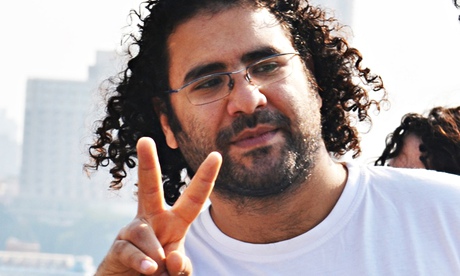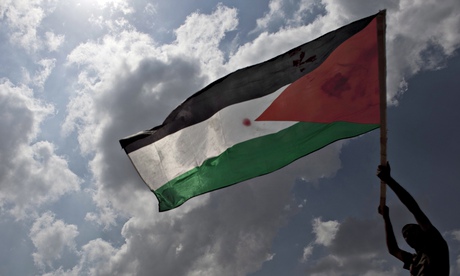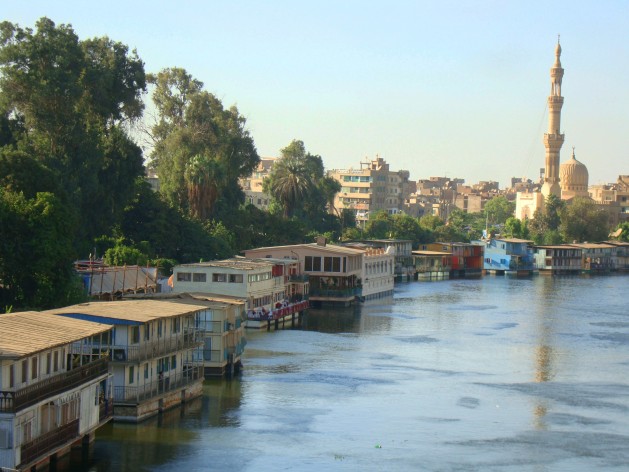ما أسهل تغيير الرؤوس وما أصعب تغيير النفوس!
د. فيصل القاسم
هل تغيرنا فعلاً، نحن العرب، بعد أن ثرنا على الطواغيت؟ هل ثرنا فعلاً كي نتغير؟ هل يمكن أن نتغير بمجرد الإطاحة بمن كانوا يحكموننا؟ أم إننا نسخة طبق الأصل عنهم، وبالتالي سنستنسخهم مرات ومرات بدل انتاج ثقافة جديدة؟ ما هو المدى الزمني الذي نحتاجه كي نتحرر فعلاً من الثقافة القديمة، التي زرعها في عقولنا وقلوبنا الطغاة الساقطون والمتساقطون؟
لا أحد يستطيع أن ينكر أن كل شرائحنا الاجتماعية والثقافية والدينية والسياسية هي عبارة عن نتاج الأنظمة، التي فرضوها علينا منذ عقود وعقود. إننا بلا أدنى شك نتاج الأنظمة التربوية والدينية والاجتماعية والثقافية التي حكمت بها الأنظمة الساقطة والآيلة للسقوط. وبالتالي: هل نحن قادرون على التحرر من تلك الأنظمة، ومتى؟ ألا يخشى أن نعيد استنساخها جيلاً بعد جيل؟ تقول إحدى الكاتبات: ‘نسمع صوت طبول الحريّة من بعيد. نعتقد أنّنا سنعيش بعد أيام لحظاتٍ لا تنسى، نعوّض فيها عقود القهر والاستبداد. لكن كلّ هذا مجرّد أحلام يقظة ليس إلا، فالمستبدّ مختبئ فينا ريثما تحين له الفرصة، ليخرج المارد من قمقمه ليصول ويجول، مكفّراً هذا بالدّين، وذاك بخيانة القضايا’.
لا شك أن الكثيرين ينتابهم مثل هذا الشعور بعد انقشاع غبار الربيع العربي، فقد ظن البعض أن مجتمعاتنا ستتغير مائة وثمانين درجة بمجرد تغيير أنظمتها السياسية، دون أن يعلموا أن أبسط أنواع التغيير هو التغيير السياسي، أما أصعبها فهو التغيير الاجتماعي والثقافي، فالثقافة التي أنتجت الطواغيت والمستبدين السياسيين يمكن أن تعيد انتاجهم طالما لم تتغير العقليات والذهنيات الثقافية السائدة في هذا المجتمع أو ذاك. لهذا لا بد أن تترافق التحولات السياسية مع تحولات اجتماعية وثقافية عميقة حتى لو استغرق ذلك وقتاً طويلاً، خاصة وأن العادات والتقاليد تموت بصعوبة بالغة، كما يقول غوستاف لوبون في كتابه الشهير ‘سيكولوجية الجماهير’.
لقد كان الكثيرون يتصرفون أيام الطغيان على أسس طائفية وعرقية ومذهبية وعشائرية وقبلية مفضوحة، وكانوا يبررون ذلك بأن الطغاة هم من قسّم المجتمعات إلى ملل ونحل متصارعة عملاً بمقولة: ‘فرق تسد’. ولا شك أن هذا صحيح تماماً.
لكن هل الأنظمة السياسية الجديدة تريد فعلاً أن تتخلص من ذلك الإرث السياسي والثقافي البغيض؟ بالطبع لا. ربما تحاول أن تغير في الشكل، لا في المضمون، خاصة وأن المجال الثقافي لم يتغير، بل سيبقى على حاله ربما لعقود وعقود. أضف إلى ذلك أن تلك الجماعات السياسية الجديدة التي بدأت تحل محل الأنظمة القديمة ربما تعمل على تكريس الثقافة السياسية القديمة مع تغيير بسيط في أسلوب العمل. ولعلنا لاحظنا كيف أن العراق مثلاً تطور طائفياً، ولم يتطور ديمقراطياً، لأن القيادات الجديدة عملت على تقوية الواقع القديم، لا بل أبرزته إلى السطح بطريقة مقززة من خلال المحاصصة الطائفية البغيضة.
هل ستقوم الطبقات السياسية الجديدة مثلاً بإجراء تغييرات جذرية على مناهج التعليم، بحيث تقطع تماماً مع العهود القديمة مرة وإلى الأبد؟ هل ستتحدى الثقافة الاجتماعية السائدة، كما تحدت الأنظمة السياسية؟
نستطيع أن نقول ببساطة إن تغيير الرؤوس دون تغيير النفوس بعد الربيع العربي هو أشبه بقطع رأس جبل الجليد الظاهر فوق الماء، والذي لا يشكل عادة سوى خمسة بالمائة من الجبل الذي يقبع جله تحت الماء.
إن أول ما ينبغي على الأنظمة الجديدة فعله، إذا كانت فعلاً صادقة في التغيير، ولا تريد فقط إعادة انتاج الأنظمة القديمة، هو القيام بثورات ثقافية عارمة تقلب رأساً على عقب أنماط التفكير والعقليات الاجتماعية المترسخة، إذا كانت صادقة في التغيير فعلاً.
لا بد أن نعلم أن التركيبة الاجتماعية في هذا المجتمع أو ذاك لن تتغير بمجرد سقوط النظام السياسي. ففي كل منطقة من بلادنا العربية نمط ثقافي واجتماعي يعتبره الناس العاديون قبل الوجهاء مقدساً. والسؤال إذاً: ما قيمة التغيير إذا كان إسقاط الرؤوس السياسية مباحاً، بينما إسقاط المقدسات الاجتماعية والثقافية المصطنعة محرماً؟
هل يقبل أعيان تلك المنطقة أو تلك في الجمهوريات العربية التي شهدت تحولات سياسية وثورية أن يتخلوا عن وضعياتهم الاجتماعية؟ هل يسمح أتباعهم بذلك أصلاً؟ بالطبع لا.
لقد أكد لوبون في كتابه المذكور أعلاه أن ‘القادة الحقيقيين للشعوب هي تقاليدها الاجتماعية والثقافية الموروثة’ التي لا تتغير بسهولة إلا شكلياً. ويضيف لوبون:’عندما يتيح شعب ما لأعرافه وتقاليده أن تترسخ بقوة زائدة طيلة أجيال عديدة، فإنه لا يعود يستطيع التطور، ويصبح عاجزاً عن التغيير والإصلاح’.
في الكثير من الجمهوريات التي حدث فيها التغيير السياسي هناك هرمية ثقافية واجتماعية لا تخطئها عين. هل يتجرأ أحد على تحطيم تلك الهرمية الاجتماعية والطائفية والعائلية بنفس الطريقة التي تم فيها تحطيم النظام السياسي؟ للأسف لا، فالموروث الثقافي والاجتماعي يحظى بقدسية أكبر بكثير من الموروث السياسي الذي رأينا الجماهير في أكثر من منطقة تحطمه وتدوس رموزه ببراعة عز نظيرها. السؤال المطروح الآن: هل تريد الجماهير الإطاحة بثقافاتها الاجتماعية الوضيعة، أم إن وقتاً طويلاً سيمر قبل أن تتجرأ على الاقتراب منها؟
ذات يوم سألت مسؤولاً كبيراً: ‘لقد جئتم إلى السلطة قبل عقود وأنتم تتوعدون الطبقات الاجتماعية والثقافية القديمة بالويل والثبور وعظائم الأمور، لكنكم تحالفتم معها شيئاً فشيئاً، لا بل عززتم مواقعها ووظائفها’، فرد قائلاً:’ هذا صحيح، لكن ليس لأننا نريد تكريس وضع قديم، بل لأننا وجدنا أن هناك قطيعاً كبيراً من الناس يسيرون خلفها بشكل أعمى، ولا يريد أن يمسها بأي تغيير، فقلنا لأنفسنا: بما أن القطيع لا يريد التغيير، لا بل من الصعب تغييره هو نفسه، فلنسر وراء تلك الطبقات القديمة التي تقود القطيع، وتتحكم به طالما أنها تحفظ الاستقرار ولا تهدد النظام السياسي’.
لا شك أن كلام المسؤول أعلاه فيه الكثير من الخبث، فهو استغل تلك الطبقات القديمة للحفاظ على النظام الجديد. وهذا ما يجب على الأنظمة الجديدة بعد الربيع العربي أن تتجنبه، وأن لا تؤثر الاستقرار على التغيير الحقيقي.
لا شك أن الربيع العربي حدث عظيم في تاريخ المنطقة. وهو المقدمة الصحيحة للبدء بالتغيير الشامل. لكن يجب على من يريد التغيير الجذري فعلاً أن لا يكتفي بتغيير الأنظمة السياسية، ثم يقول لنفسه: سقط الطغاة وانتهت الثورات. لا لم تنته الثورات بسقوط الطغاة، بل بدأت. وإذا لم تستمر النخب الثورية بمتابعة المسيرة الثورية سيكون من حق المتشائمين أن يقولوا بحسرة: إن الطبقات والهياكل والأطر والعقليات والأشخاص الذين صنعوا العهود الساقطة مازالوا موجودين بيننا بعد الثورات، جاهزين لتطبيق قانون التّخلف والاستبداد مرة تلو الأخرى. إنه صراع مرير بين قوى الرجعية بمختلف أشكالها السياسية والثقافية والدينية وقوى التغيير. ولو نظرنا إلى طبيعة الصراع الآن في بلدان الربيع العربي نجد القوى القديمة تشن ثورات مضادة شرسة اعتماداً على الموروث الجاهز لديها. لاحظنا ذلك من قبل في الجزائر، حيث تمخضت الثورة على مدى التسعينات عن عودة كاملة متكاملة للنظام القديم بكل أشكاله. وكذلك الآن فيمصر، حيث يعود النظام القديم بشراسة رهيبة وسط تصفيق نفس الشرائح التي ثارت عليه. ما أحوجنا إلى ثورات ثقافية عارمة قبل أن نحلم بالتغيير المنشود، وهو للأسف ممنوع حتى الآن!











